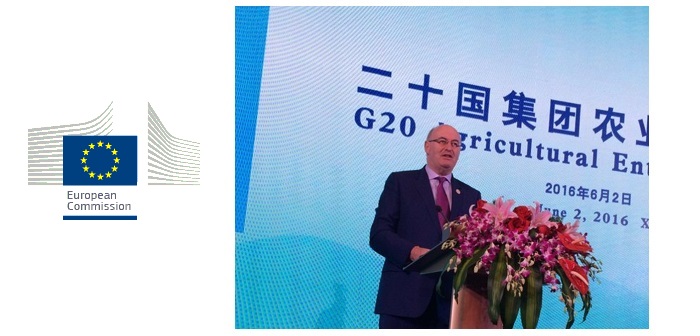Global farm policy-makers need to stimulate a new generation of young agri-entrepreneurs by providing them with the right support structures to help them progress, European farm commissioner, Phil Hogan, told today’s G20 agricultural entrepreneurs forum, meeting in Xi’an, China.
This means developing innovative farm policies, smart regulation and investment, and well-functioning markets, he told the gathering, adding that this was only one part of the equation, leading to progress.
“Today, farmers are not simply expected to provide high-quality, nutritious and affordable food, and generate rural jobs and growth,” he said. “They are also expected to play a role in combatting climate change and managing precious resources like soil and water.”
In addressing such challenges, he urged the G20 leaders to be realistic and acknowledge that public funding alone will not be enough to secure these goals.
“The private sector must be mobilised,” he said. “It has resources to achieve the scale of investments needed, with private investment, if it is responsible, becoming an enormous force for positive change.”
In that context, he urged the governments represented to promote a stable, socially responsible business environment for private sector investment, geared to support the development of food systems, adding that the European Union (EU) wanted to “lead from the front” on such issues.
“The Common Agricultural Policy has become far more outward looking and is now firmly plugged into the global economy,” said Mr Hogan (pictured above), adding that the EU’s contribution included correcting and preventing trade restrictions and distortions in global markets.
“We need to get smarter, however, when it comes to helping agri-entrepreneurs, by which I mean we need smart, sustainable and responsible investment to take us forward. That will be the catalyst for progress.”


